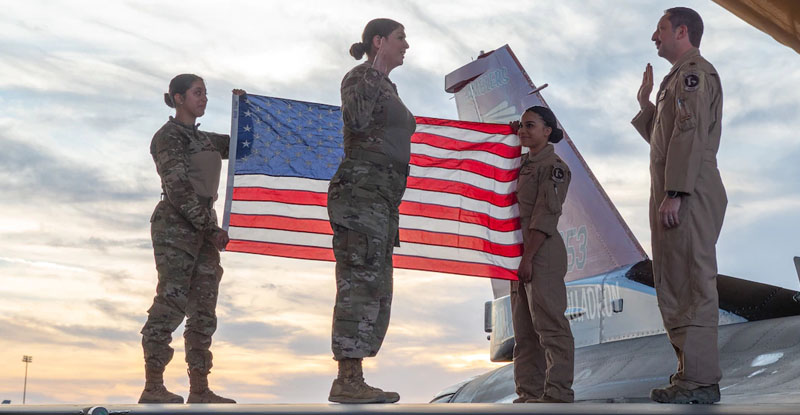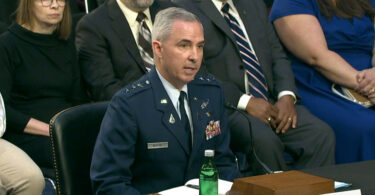Two articles about a recent symposium on the Future of the All-Volunteer, All-Recruited Force held at the Naval War College trying to get around the issue of wokeness in the military:
The military must recruit more women and more immigrants—and change its culture to embrace diversity as a strength—to be successful in the future, experts said Wednesday at a symposium timed to the 50th anniversary of the all-volunteer force.
The remarks come at a time when politicians and conservative commentators have blamed “wokeness,” a catch-all term generally used to deride diversity and inclusion initiatives and programs for female service members, for what they believe is a decline in military effectiveness. For example, on Wednesday, Rep. Mike Waltz, R-Fla., recently named chairman of the House Armed Services Subcommittee on Readiness, tweeted, “I am ready to get to work to better equip our military and turn our focus away from woke priorities and back to winning wars.”
A Reagan National Defense Survey late last year found a decreased confidence in the military among respondents, with 62 percent believing military leadership has become overly politicized, and 50 percent believing “so-called ‘woke’ practices” were undermining military effectiveness.
But Lindsay Cohn, an associate professor of national security affairs at the Naval War College, rejected the idea that “wokeness” is hurting recruiting, saying there is plenty of data showing why people don’t join the military, and “wokeness is not on the list.”
“We don’t have any indication that people are not joining the military because they’re afraid it’s too woke, or because they’re afraid it’s too soft,” Cohn said during a panel discussion at the recruiting symposium, which was organized by the Marine Corps and hosted by the U.S. Naval Institute.
Instead, she said, research shows that trust in the military is “becoming more and more a partisan issue,” and that trust is going down “primarily among Republicans”—but is still very high.
Meredith Kleykamp, an associate professor at the University of Maryland and director of the Center for Research on Military Organization, noted that the Reagan surveyors did not specifically talk to young people who could potentially join the military.
“We are not recruiting whoever the population is that is responding to that poll exclusively. We’re recruiting” 18- to 25-year-olds, who hold “very different views” about social justice, Kleykamp said. “Sometimes it feels like…we’re recruiting the people who are already in” instead of appealing to the next generation.
Data presented at the symposium by Nicholas Eberstadt of the American Enterprise Institute and Richard Fry of Pew Research Center showed that immigrants and women are likely to make up a larger percentage of the recruiting pool in 2040, and are more likely to have the education and skills necessary to join the military. . . . .
. . . . Change must “come from the top down.” But “in the current political environment in this country, that’s difficult,” because there’s not a consensus on what the ideal culture is, she said.
Col. Eric Reid told Defense One the military’s “ability to recruit and retain a capable all-volunteer force could be hindered if hyper-partisan domestic politics are projected onto military policies. I worry that we will have a serious uphill fight if individual military policy decisions can be used to immediately alienate half of the national recruiting base and their influencers. Military service must remain a non-partisan calling.” . . . . (read more on Defense One)
Experts, data point to women as best military recruiting pool (Air Force Times, 26 JAN 23)
The United States military is coming up on 50 years as an all-volunteer force, at a time when the services are facing a historically difficult uphill battle finding enough qualified volunteers to fill their ranks.
With that in mind, social scientists, military experts and national security strategists came together at the Naval Academy on Wednesday to tackle some pressing questions: What will the military do in 2040, who will serve in it and how will it recruit people?
Diversity is a top-line requirement, multiple experts said. To put a finer point on it, demographic data on the U.S. population shows that women are surpassing men in education as men’s participation in the workforce is dropping.
“I think it’s important to say this out loud: we’re going to need to rely more on women,” Lindsay Cohn, an associated professor of national security affairs at the Naval War College, said during a panel at the Future of the All-Volunteer, All-Recruited Force symposium. . . . (read more)








Leave a Comment